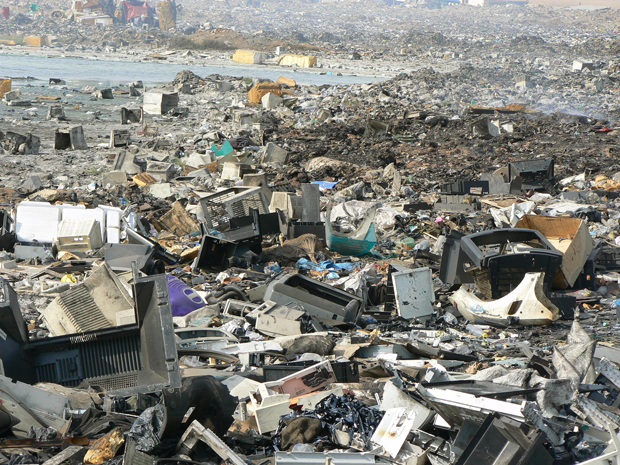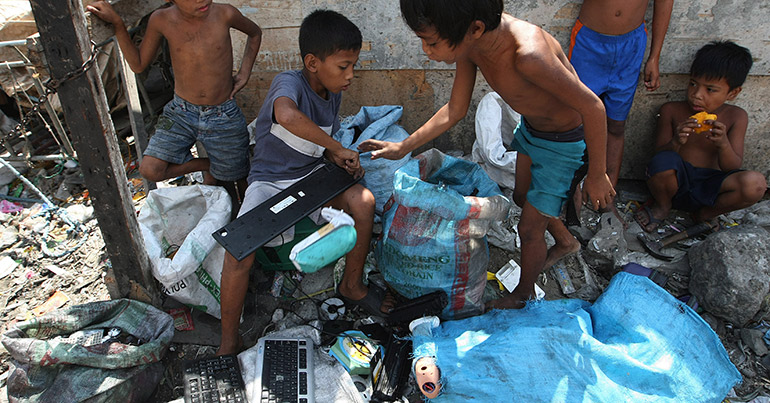Our life without gadgets nowadays seems impossible. Be it cell phones or tablets, televisions, batteries and so on, we have filled our lives with electronic junk. Yes, electronic junk! And, with our dependency increasing on such electronic systems and gadgets day by day, we are only contributing more waste to the environment. You wonder how? Electrical testing labs predict that most of the electronic items consist of metal components like lead, zinc, copper, barium etc. which are toxic in nature. Both manufacturers and users should be thoughtful about their devices once they go out of use. If disposed irresponsibly into the surroundings, the repercussions of the damage they cause is far reaching and for many generations to come.
How Does Waste from Electronics Industry Impact the Environment?
1. Effect on Air:
Electrical testing labs have found out that burning of batteries which contain lead, copper, or zinc can introduce harmful chemicals into the air we breathe. This is adding up to the toxicity of air damaging our environment in the most brutal way possible. If this air containing toxic agents is breathed in by humans, it can cause severe respiratory diseases like bronchitis, asthma and even cancer since these chemicals are highly carcinogenic too.
2. Effect on Soil:
The most common way of disposing of electronic compounds is landfilling. This way, the toxic components from the electronic items can seep into the soil and groundwater ultimately affecting human health. These components can be absorbed by the crops and plants introducing themselves into the food chain. The soil-crop-food pathway is one of the most common ways of toxic compounds entering into the food stream and is causing deleterious effects on humans and even livestock. Also, these chemicals are non-biodegradable exposing them to the environment for a longer time.
3. Effect on Water:
If they are ever disposed of into the water, the toxic chemicals make their way into the streams and ponds. Local people who are reliant on these water sources are more prone to the hazardous effects of these chemicals, some of which are carcinogenic. If these gadgets ever find the way to bigger water sources like ponds, rivers, or ocean, they will affect the marine life too and result in water pollution.
4. Effect on Humans
And, you never thought electronic items could be a major source of environment pollution. Yet, ultimately, it is the living beings that bear the brunt of pollution caused by electronic goods. These toxicities can have a hazardous impact on human liver, kidney, and even our nervous systems. While lead can do damage to reproductive system, mercury can cause brain and kidney damage. Arsenic in microchips has a hazardous impact on skin, liver, and respiratory organs.
What Are the Factors Responsible for Electronic Waste?
1. Lack of Responsible Recycling
Only a fraction of electronic items is recycled or used again. This leads to mounting up of electronic devices contributing to more and more waste.
2. New Advancements
Technology is advancing at a rapid scale. With new launches taking place every day, the older versions become obsolete with time. All this is happening at a rapid pace and results in a shorter life span of gadgets without even defining proper measures for recycling or eco-friendly disposal.
3. Increased Population
With an increase in population, the use of electronic gadgets has also increased. For example, an individual may have more than one cell phone with them. The continuous increase in consumption of electronic goods has increased the generation of electronic waste.
What Is the Solution?
a) For Government:
Governments should make conscious efforts to put more stringent limits on the use of toxic chemicals in electrical products. Clear guidelines should be given to ensure these limits are not exceeded by the electronics industries. In fact, the use of some highly hazardous compounds should be prohibited by the government and eco-friendly alternatives should be promoted.
b) For Enterprises
Not only the government, electrical industries should also take some necessary measures to avoid causing electronic waste. Besides getting all their products tested, they should also work on the standardized treatment systems to dispose the waste in an eco-friendly manner.
Contributed byhttp://www.spectro.in/












